In Iraq, Obama faces the greatest test of his attempt to recast US foreign policy.
Despite the undoubted early coup of killing Osama bin Laden, foreign policy has proven a particular area of vulnerability for US President Barack Obama. He has been stalked by sustained attacks from Republicans over his response to the deadly assault on the US Consulate in Benghazi on September 11, 2012. His efforts to bring the Israelis and Palestinians to the negotiating table seem to have been undone by the recent merger of Fatah and Hamas, and the subsequent rapid escalation in the conflict. Obama has been accused of attempting to placate long-time enemy Iran, and of dithering over how to respond to Russian expansion into Ukraine and now the ongoing security situation in Iraq.
Many of these criticisms have been lacking in substance and are largely partisan in nature. The Benghazi affair has become one of the Republican Party’s favorite sticks with which to beat the president, despite the fact that no amount of digging has led to the kind of scandal they have sought to portray. Obama’s lack of success over the Israeli-Palestinian conflict has mirrored that of virtually every previous attempt to address the issue. While many Americans may react with an instinctive revulsion to the notion of cutting deals with Iran, the engagement with Tehran over its nuclear program may yet lead to an agreement that allows for a purely civil nuclear program. Even if it does not, the ongoing dialogue marks a significant shift in Iran’s relations with the West and could result in further cooperation, as already mooted in regard to the Iraq crisis. The application of sanctions on Moscow for its involvement in the ongoing unrest in Ukraine seems to have had some effect, with Russian President Vladimir Putin taking apparent steps to deescalate the crisis.
Shifting Sands
However, Obama’s hesitancy in determining a course of action over the Islamic State-led Sunni insurgency in Iraq represents a major test of the shift in foreign policy he set out in a speech to the West Point Military Academy in May. The speech outlined a new role for the US as an enabler of security, by facilitating partner countries in their efforts against shared threats. The goal is the projection of US power from a distance without the profound costs in terms of dollars and lives incurred since 9/11. This new foreign policy stresses that military action will only be resorted to when US interests are directly at stake and prizes rather than shirks international support. It sees a renewed emphasis on the use of diplomacy and sanctions for applying pressure. It also recognizes the fact that military force alone cannot confront extremism, by highlighting the importance of education and development as “soft” weapons in the US foreign policy armory.
This shift reflects contrasting political exigencies faced by the White House. The aforementioned criticisms by the Republicans of Obama’s weakness on foreign policy necessitate a response that underlines America’s continued role at the forefront of international affairs. But there is also an awareness that after the experiences of Iraq and Afghanistan, there is no longer an appetite in the US for direct intervention, as exemplified by the administration’s failure to gain support for airstrikes on Syria in 2013, both in Congress and among the public.
Certainly, it is difficult to envisage more of a failure than George W. Bush’s Iraq folly, yet there is thus far little to suggest that Obama’s approach will achieve the kind of enduring success in confronting Islamic extremism that eluded his predecessor.
Crucially, the new policy also reflects the fact that al-Qaeda no longer represents the monolithic threat it was portrayed as ten years ago. The threat has instead been devolved to myriad smaller and decentralized groups, spread over a broad geographical area. As such, a more granular, reactive and cooperative approach is required than that seen in previous years. Any direct action on America’s part would thus be limited and focused. Examples of this approach have already been borne out in the continued campaign of drone strikes in Yemen and Pakistan, the involvement of Navy SEALS in recovering the hijacked MV Morning Glory oil tanker in Libya in March, and the operation on June 15 to apprehend a suspect in the Benghazi attack.
Of course, whether the exploitation of isolated opportunities to achieve narrow tactical goals will have broader strategic success than the grand military campaigns of the Bush administration remains to be seen. Certainly, it is difficult to envisage more of a failure than George W. Bush’s Iraq folly, yet there is thus far little to suggest that Obama’s approach will achieve the kind of enduring success in confronting Islamic extremism that eluded his predecessor. The splintering of al-Qaeda into countless dispersed groups is hardly emblematic of a contained threat.
Iraq: Testing the New Foreign Policy
Obama’s careful deliberation over major issues has been one of the defining features of his presidency, certainly compared with Bush. However, over the Sunni insurgency in Iraq, accusations of hesitancy have started to seem justified. The Islamic State and its Sunni supporters made sudden and rapid advances to take control of several important Iraqi cities, including Mosul and Tikrit. On June 29, the Islamic State proclaimed the establishment of a caliphate encompassing territory under its control in Iraq and Syria.
The period after the escalation of the insurgency offensive in June has been marked by speculation, first over the US redeploying troops to Iraq and then over possible airstrikes. The first was swiftly ruled out, while the second seemed a strong possibility, particularly when, on June 18, the Iraqi government formally requested precisely that action. The pressure on Obama to engage with the crisis has been intense, especially given the global perception that it is a crisis in which American action has played a formative role. With Secretary of State John Kerry’s comments on June 24 that airstrikes in the absence of a substantial Iraqi military to support would be a “total act of irresponsibility,” the Obama administration seems to have taken a clear step back on direct military action, for now.
Instead, we can see what might be an example of calibrated but cautious support for a country on the frontline of the battle against Islamic extremism. The Pentagon is sending military advisors to evaluate the state of the Iraqi military, thereby providing the White House with a better impression of how best to support the country’s fragmented forces.
The depth of division in Iraq and the evident weakness of its security forces — contrasting with the demonstrable strength of Islamic State insurgents and their allies — may make this something of an unwinnable situation.
Meanwhile, Obama and Kerry have stressed the importance of national unity in confronting the insurgency, calling upon Shia, Sunni and Kurdish leaders to pull together and support the Iraqi government. In the face of a splintering country, Kerry has facilitated moves toward forming a new government and distributing power between Iraq’s various sectarian and ethnic factions. Despite early indications that the prospects of forming an all-inclusive unity government were highly limited, the Iraqi parliament is pressing ahead in hopes of a breakthrough.
Obama’s Greatest Test
The current Iraq crisis is perhaps the sharpest possible test of Obama’s shift in foreign policy, and the administration certainly faces enormous challenges. The depth of division in Iraq and the evident weakness of its security forces — contrasting with the demonstrable strength of Islamic State insurgents and their allies — may make this something of an unwinnable situation.
In this light, Obama’s actions may be guided more by political necessity than by some nascent grand strategy. Ultimately, the Sunni insurgency in Iraq is likely to represent little direct threat to the US, beyond the already-present prospect of American citizens going to fight alongside Islamist extremists and then returning home with newfound militant expertise.
Also unpalatable to the Obama administration, particularly ahead of November’s mid-term elections, is the prospect of Republican accusations that the administration has frozen in the face of an Islamist militant advance, and is simply watching the great democracy project in Iraq crumble to pieces. As is so often the case in international engagement, with burgeoning partisan pressure and the prospect of Iraq’s total collapse seeming ever closer to reality, the worst option — politically at least — is to do nothing.
The views expressed in this article are the author’s own and do not necessarily reflect Fair Observer’s editorial policy.
Support Fair Observer
We rely on your support for our independence, diversity and quality.
For more than 10 years, Fair Observer has been free, fair and independent. No billionaire owns us, no advertisers control us. We are a reader-supported nonprofit. Unlike many other publications, we keep our content free for readers regardless of where they live or whether they can afford to pay. We have no paywalls and no ads.
In the post-truth era of fake news, echo chambers and filter bubbles, we publish a plurality of perspectives from around the world. Anyone can publish with us, but everyone goes through a rigorous editorial process. So, you get fact-checked, well-reasoned content instead of noise.
We publish 2,500+ voices from 90+ countries. We also conduct education and training programs
on subjects ranging from digital media and journalism to writing and critical thinking. This
doesn’t come cheap. Servers, editors, trainers and web developers cost
money.
Please consider supporting us on a regular basis as a recurring donor or a
sustaining member.
Will you support FO’s journalism?
We rely on your support for our independence, diversity and quality.





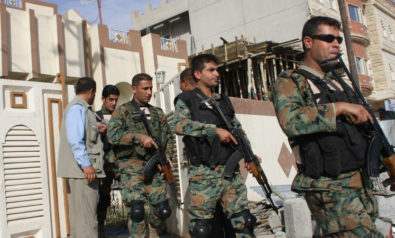
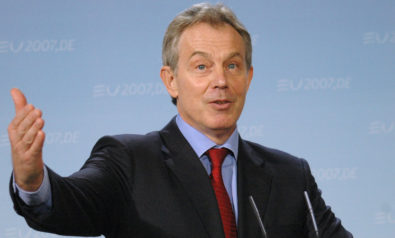


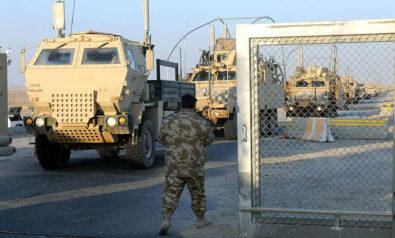





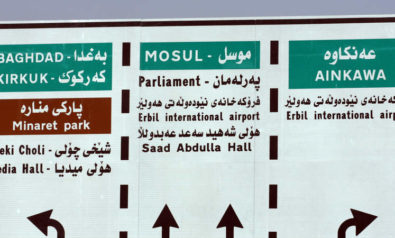
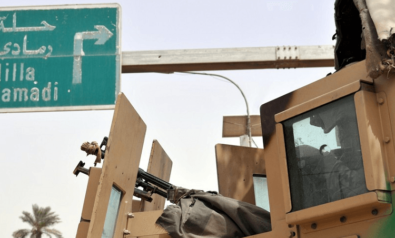



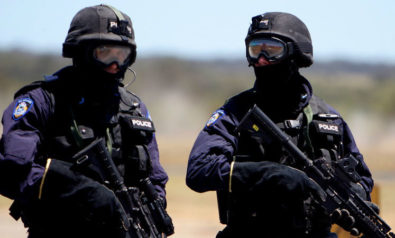



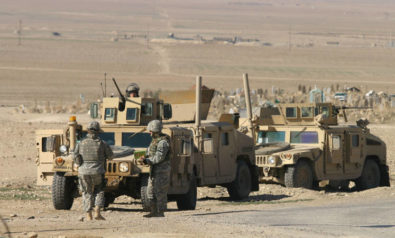
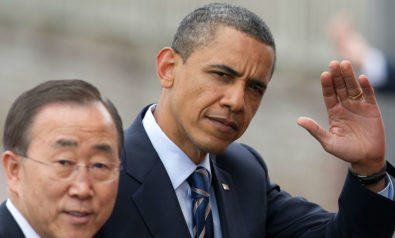






Comment
The GOP (The party of No) continues their assault on President Obama’s foreign policy becasue they have very little on the domestic front on which to attack. Iraq was an “unwinnable” situation as soon as it became apparent that the U.S. started an unnecessary war over imaginary WMDs. If out former GOP president knew what he was doing, we would not have started any wars in the Middle East, which are turning out to be a total waste of lives,money and reputation for the U.S. This article was apparently written before Putin supplied the missiles that shot down the Malaysian airliner, but the the fact is no U.S. President has ever had any control over anything Russia does.